How to completely transform your psyche - Part 1
Encountering the work of Jiddu Krishnamurti and David Bohm for the first time changed my life. It’s tempting to say that “my world came crashing down,” but that wasn’t how it felt. It was more like Bohm and Krishnamurti pointed out to me that most of my mental “world” is based on some very deep-seated, hidden assumptions that I’ve never questioned, so it can be dismantled immediately if I really look at it…and that’s a good thing.
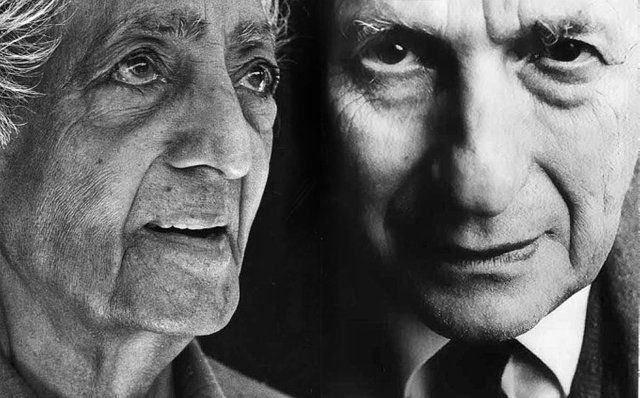
In their unflinching inquiry into the meaning of life and our basic problems as humans, these two dared to question the way thought works and the all-important status we give it in our lives. They suggested that thought and (I think they would say, perhaps equivalently) psychological time, create most of the problems in our private lives and societies, so that one could say that all the crises in the world boil down to a crisis of consciousness.
Their collaboration, which lasted more more than 25 years, produced some insights into the inner workings of thought and time that we usually take for granted. It involved scrutiny of the image we have of the 'self’ as a discrete, individual entity, and how this construct is built up by thought through time...which led to the possibility that the self is it not real.
This is utterly mind-blowing at first encounter and has profound implications for personal life and human interaction.
The following is Part 1 of my initial reaction to (what I see as) some of the salient points of the combined work of Bohm and Krishnamurti.*
It is intended to be part personal story (i.e., ramblings) and part introduction to the work of these extraordinary men, and ends with a case for further experimentation with “Bohmian dialogue” as one possible way of actually doing something with these insights.
EXTREME self reliance
Jiddu Krishnamurti (1895 - 1986), henceforward “K,” held that it is literally possible for you or me, or any ordinary person, to bring about “a complete revolution in the psyche.” He would have hated the clickbaity title of this post because it implies that there is a method to accomplish this that can be taught by one person to another.
Seeing all of the suffering people in the world and the violence we’re inflicting on each other, a person may see a need for some change in the basic nature of humanity. She may also notice that her search for ‘truth’ in the form of a religious or ideological path has been fruitless and disappointing.
This passage from a public meeting that K held in Brockwood Park, UK, in 1979 (starting at about 11:35) really resonated with me:
We're inquiring into what is fear, pleasure, suffering, and somewhat into the whole question of death.
And I think we should also inquire very deeply this question of 'what is religion?' Because man has lived by that.
Man has sought to find out something away from the normal, which is not abnormal, which is not neurotic - something beyond the actual. The actual happening. The actual pain, The actual grief, the actual anxiety. The actual sensory, sexual demands and their experiences. If there's something far more - that has been the inquiry of man. And that is called the search for god, search for truth, search for various forms of nirvana, moksha, liberation, etc., enlightenment. This has been the constant, deep demand of serious people.
And in his search he gets caught. He joins one religion, abandons it, then goes to another, abandons that, so he's caught in various traps in his search. By the end of the search when he's about to die, he says, "I've found nothing. I've been to this guru, that guru, this temple, that church, followed the various cantankerous, surperstitious priests, and so on." At the end of it all, as he's about to die, he realizes there's nothing. He has nothing but ashes.
So could we (in our inquiry, if we are serious) leave all that?
I felt "caught" in this way for the majority of my life because I was operating under the assumption that the way to uncover some kind of truth and meaning in life is to study and compare the existing religions and spiritual knowledge that people have supposedly accumulated over time, weighing the pros and cons of each one, and hoping for some spontanteous revelation, or insight. I sometimes thought that all of these paths may be infinite, but somehow we have to ignore that paradox and just enjoy the journey.
I had just reached a point about a year ago where I thought “I don’t believe in any of these religions. Although I respect them and like some of their ideas and images, it would be insincere to pretend I believe them."
So I started exploring Zazen and different types of meditation, trying to bring about some direct perception of truth through a technique other than logical thought. That seemed to be progress! But it still all depended on following a method suggested by a friend or by Buddhist texts, or more secular Shambhala texts, or whatever. My exploration wasn’t self reliant; it still depended on accepting an authority.
In Freedom from the Known, K suggests that if a person really wants to effect change, she will start asking herself how to go about it.
A man who says, ‘I want to change, tell me how to,’ seems very earnest, very serious, but he is not. He wants an authority whom he hopes will bring about order in himself. But can authority ever bring about inward order? Order imposed from without must always breed disorder.
You may see the truth of this intellectually but can you actually apply it so that your mind no longer projects any authority, the authority of a book, a teacher, a wife or husband, a parent, a friend, or of society? Because we have always functioned within the patterns of a formula, the formula becomes the ideology and the authority; but the moment you really see that the question, ‘How can I change?’ sets up a new authority, you have finished with authority for ever.”
--K, Freedom from the Known
I especially love how he points out in the same Brockwood Park meeting (around 21:20) that to say “I believe in ____, and now I’m going to seriously inquire into the meaning of life" is nonsense!
And in that inquiry there must be freedom to observe. You can't say, well, I believe in God, or Jesus, or Krishna, or whatever it is, and then inquire. You can't. That's just playing tricks. You can play tricks upon yourself, but when you're inquiring seriously, you must play the game.
I’ve always felt this way but did not express the reasons for my frustration so clearly.
He goes on to say in Freedom from the Known that if you can really do this and not just understand his statements on an intellectual level, if you can really reject all of the authority of religion, ideology, and others’ opinions that we’ve been carrying around for generations, then you are no longer afraid.

You have more capacity, more drive, greater intensity and vitality. If you do not feel this, then you have not discarded the dead weight of authority.
But when you have thrown it off and have this energy in which there is so fear at all – no fear of making a mistake, no fear of doing right or wrong- then is not that energy itself the mutation?
--K, Freedom from the Known
The authority of conditioning
This approach alone seemed revolutionary and very refreshing. But K doesn’t stop there…
Having realized that we can depend on no outside authority in bringing about a total revolution within the structure of our own psyche, there is the immensely greater difficulty of rejecting our own inward authority, the authority of our own particular little experiences and accumulated opinions, knowledge, ideas and ideals. You had an experience yesterday which taught you something and what it taught you becomes a new authority – and that authority of yesterday is as destructive as the authority of a thouasand years.
To understand ourselves needs to authority either of yesterday or of a thousand years because we are living things, always moving, flowing, never resting. When we look at ourselves with the dead authority of yesterday we will fail to understand the living movement and the beauty and quality of that movement.
--K, Freedom from the Known
He wants to explore the nature of “ourselves” together with the reader- not as a teacher or a guide but as a friend. So he says, let’s start from nothing, with fresh minds, and just really look at what’s happening in ourselves, without any judgment or distortion. This is sheer attention, and not thought.
If we take this suggestion seriously, our tendency to think of time as past, present, and future, and to apply the knowledge of the past to the present, breaks down.
After reading up to here, I knew I wouldn’t be the same again. I was already used to the brand of independence and freedom in Emerson’s non-conformist essay “Self-Reliance."
Nothing is at last sacred but the integrity of your own mind.
Insist on yourself; never imitate. Your own gift you can present every moment with the cumulative force of a whole life's cultivation; but of the adopted talent of another you have only an extemporaneous half possession. That which each can do best, none but his Maker can teach him.
--Ralph Waldo Emerson, "Self-Reliance," 1841
Of course, this has been reworked and adjusted for modern times, and dependence on a notion of "God" or "principle" is not as much a part of mainstream dialogue as it used to be. But there is still an implicit reliance on the process of logical thinking and emphasis on self-improvement through the intellect in the approach of the Transcendentalists and those who continued in this vein of independence. Doubting logic and the self never even seemed to be an option.
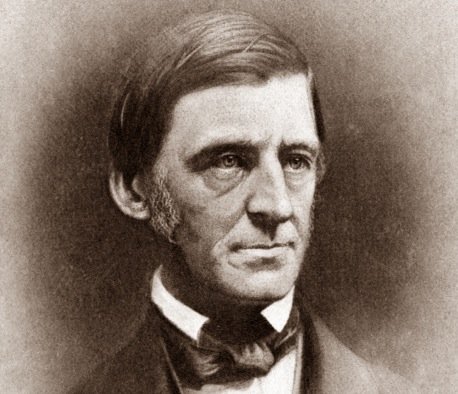
I’m not trying to say that there’s any point in comparing K to the Transcendentalists’ thought. I’m just saying that Emerson’s essay is the first other example of throwing away assumptions and reliance on authority that occurred to me, maybe because I enjoyed and remember reading a lot of related work. And to put it crudely, I think K’s work is like “Self reliance” on steroids. Once you’ve transformed your psyche, it’s as if you’ve taken the “red pill” and can’t go back!
The Bohm-Krishnamurti Collaboration
Dr. David Bohm (1917 - 1992) was a renowned theoretical physicist who worked on quantum mechanics, relativity, the science of the brain, and the study of consciousness. He developed ontological interpretations of the theory of quantum mechanics that explain its strange phenomena using hidden variables.
I would say that in my scientific and philosophical work, my main concern has been with understanding the nature of reality in general and of consciousness in particular as a coherent whole, which is never static or complete but which is an unending process of movement and unfoldment.
--David Bohm, Wholeness and the Implicate Order
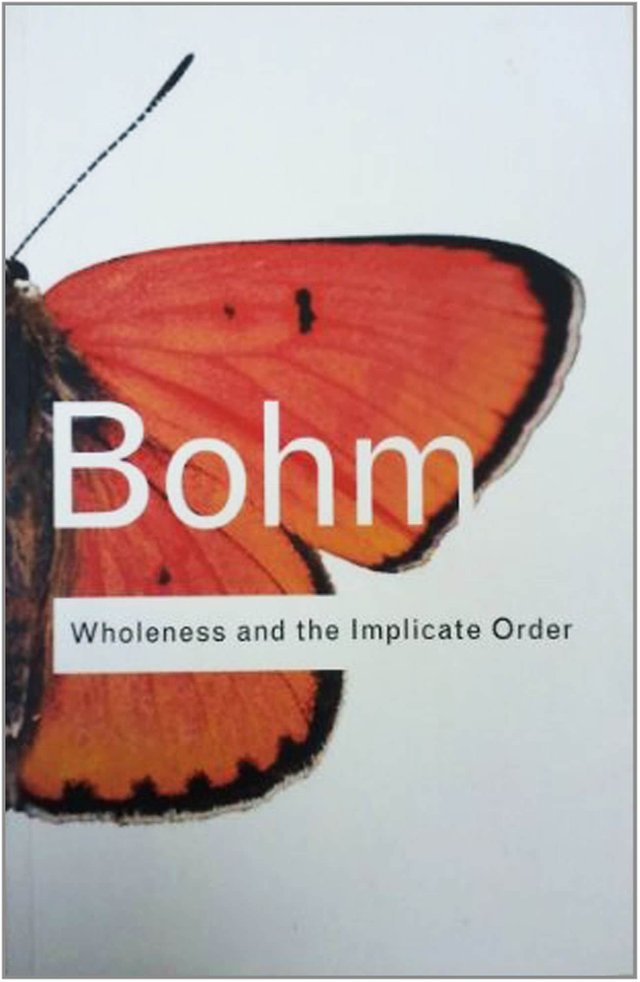
I am reading this book on the recommendation of someone on Steemit, and highly recommend it.
Bohm sought out K because he saw a striking similarity between K's work and his own work in quantum physics. He thought that K had "deep insight into the question of the observer and the observed." What ensued was an intense and long-lived collaboration, so that they had a profound influence on each other's work.
I am not a physicist and will not try to analyze Bohm's version of quantum mechanics scientifically, but will begin in Part 2 with the series of dialogues between Bohm and K published as "The Ending of Time." These talks are inspiring and beautiful to watch because both participants are sincere enough in their inquiry to start from a point of freedom, as described above, without bringing in personal prejudice or judgment.
*All Steem Dollars earned by these posts will go to the David Bohm Society, which "exists to inventory, preserve and promote David Bohm’s work and to explore and realize his proposals." The founder of this group, Matthew Capowski, is working on a film that is specifically about David Bohm’s proposals (not a biography) to reach a larger audience than he has so far.
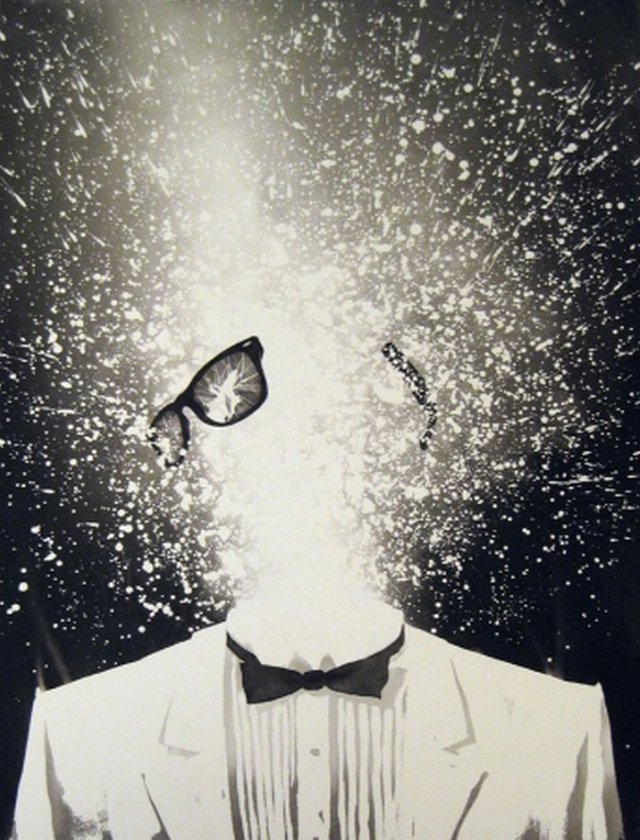
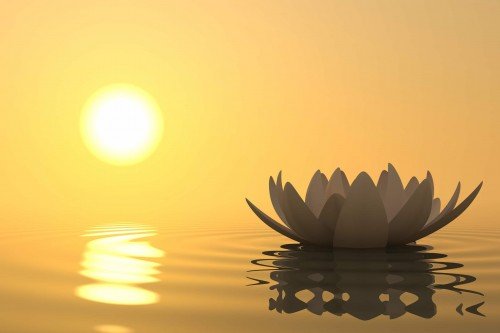
Love the mind of K. Myself have sought to understand these ideas or rather lack of ideas. Will write my ideas and reflections sometime.
cool post, @edgeland

I'd love to read them. ;)
«We are all in the gutter, but some of us are looking at the stars.» Oscar Wilde
Ooh. I like that!
Change is possible and not scary. I love this. Most people don't truly believe that they can change, or they think that change equals something to be frightened about. I'm the opposite in many instances.
So any post that promotes the concept that fundamental change is possible is getting my upvote.
It's a very hard concept to promote to people who are scared or not open-minded about it.
All there is change. Very hard to understand as we misunderstand so much. No fear exists in an open mind.
It's so sad that 40 people upvoted this without reading it just because @berniesanders did. The curation system here is sooo flawed!
I read it though and am SO THANKFUL to have found a well written, interesting, post that could actually change people's lives on steemit today.
I have to agree fully! I sat down with my coffee and read this amazing post! It's so worth my upvote. Sadly my vote is still you know... :D But amazing post really great work! I look forward to reading more!
Thanks! I'm so glad you enjoyed it! It took me a while to write.
@berniesanders has more free time on his hands now days!
Lol.
I definitely agree that the curation system should encourage reading posts before upvoting them. Thanks for the compliment about the post though, and for actually reading the thing! I'm glad you liked it.
Reading is incentivised on Steem :-) Thoughtful, relevant comments stand to earn substantial rewards and writing them usually requires at least some close reading.
Great post OP!
People see that a whale voted on something and blindly pile on, hoping to ride the wave to trending and make some free and easy curation $. It's pretty mindless.
@juanlibertad, good point. I do think a lot of good content rises to the top. I figured that @apocaloptimisto was referring the pile-on effect, as he says below.
Thanks!
An easy solution to the curation issue would be to hide votes and payouts from displaying on the post until the post is 24 hours old. No one listens to me here though so if you think it's a good idea, please share it.
We've discussed this numerous times in the past with the Steem devs. They don't always listen to us ...
It's because they're scamming everyone here. If you don't believe me, check the ledgers. The whales aren't holding steem. They're cashing out, and they're making fake accounts to pump up so they can power down faster. This whole thing's a scam.
https://steemit.com/steemit/@apocaloptimisto/dantheman-ned-please-remove-my-content-from-this-site
You have a point but right now it's all about the real big whales, if you don't get at least one vote from one of them your post is basically doomed and forgotten in 30 minutes. You can get 100 upvotes from dolphins and minnows which should be great but that could be worth $10...
This site is a ponzi scheme full of idiots. I'm out.
I just want to add that a lot of these may be bots and/or people who have multiple accounts.
We want God to take away all of the problems, pain, and suffering. But God is far more interested in changing your mind than changing your circumstances.
Hey, congrats on a great article that reached the TOP 10 Steemit Trending list. Since it's there I've also added it to theFlipboard Steemit Trending Magazine for everyone to see it. Looking forward to part 2!
Thank you!
Saving this for later :)
I love reads like this - thank you
Thanks. :)
Wow, so interesting to find persons that are interested in K and/or Bohm on this platform. I'm truly inspired. Thank you.
I know, I've met a few on here, so the platform is even cooler than expected. I'm glad you liked it! This is my first time writing about them.
I'm going to ask a broader question, whether they really changed the course of human life? The Birth - Maturity - Old Age - Death? Otherwise, it's just mind Games
You mean that if they didn't change that physical cycle in life, these are just mind games? If so, I disagree with that.
I agree that in the field of consciousness they opened people's eyes to some things, but the real transformation , in my opinion needs to happen on all levels of existence, including the physical.
Oh, I see. I didn't mention it here, but these guys both admit in "The Ending of Time" that thought is a physical process, and that having insight may change the electrical activity and the pathways in the brain. So this is related to neuroplasticity. I think you can help prevent the brain from getting stuck in an unhealthy rut by continuously learning and leaving your comfort zone, and they're suggesting doing that and more.
@cousteau, I have no idea, but I don't think that is what thought evolved to do. Also, I'm not sure I would want to extend life indefinitely. We may have that option if we start uploading our consciousnesses into machines.
All have long been saying about the materiality of thought, but if anyone has achieved this success , he could move things with thought or to extend its life indefinitely with the power of thought?
Thank you. Have to read more about these two thinkers. I would also recommend a classic, Meditations by Marcus Aurelius, which gives a lot of tools for life and happiness:)
Thanks. I think I read part of the Meditations in high school, but never finished it. Probably wasn't able to understand as well back then either. I will revisit it. :D